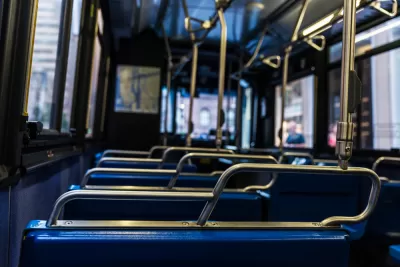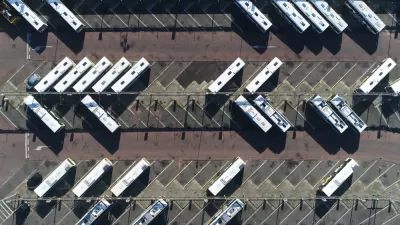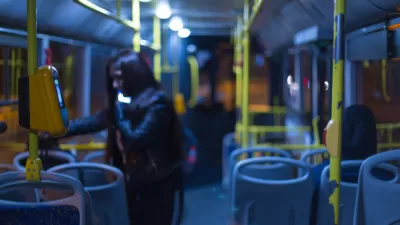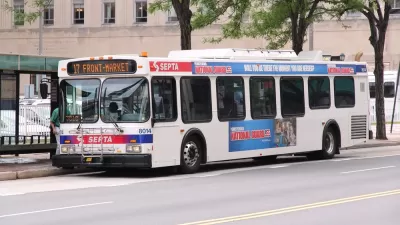U.S. transit systems are still scrambling to find alternate funding sources and adjust their service to new needs as ridership remains below pre-pandemic levels.

“How can you fill a revenue gap when the riders haven’t come back?” As Jared Brey writes in Governing, this is becoming an increasingly urgent question for transit agencies around the country.
For San Francisco’s Bay Area Rapid Transit (BART), the answer may be putting a measure on the ballot asking voters to fund transit more heavily.“BART’s budget is balanced for the 2023-2024 fiscal year, but next year, it’s facing a $140 million deficit,” Brey explains. “Every year after that the system is looking at a deficit of around $300 million.” And while the agency has requested funding from the state, so far, they’ve only seen cuts in Governor Gavin Newsom’s proposed budget.
On the other side of the country, “The Metropolitan Transportation Authority in New York is considering raising subway fares above $3 as part of a suite of measures to plug an estimated $2 billion yearly revenue gap once federal funding runs out. The Massachusetts Bay Transportation Authority (MBTA) is facing gaps of between $286 million and $542 million in fiscal years 2026-2028 and is leaning more on state and local subsidies than it used to; MBTA’s fare recovery ratio dropped from 43 percent before the pandemic to less than 25 percent in the current budget, according to Lisa Battiston, an agency spokesperson.”
Reducing service may seem like an attractive option for cash-strapped agencies, but could in fact be “a feedback loop that makes everyone worse off,” according to Garett Shrode, a policy analyst at the Eno Center for Transportation. “Cutting service to save money would harm those riders and wouldn’t do much for most agencies’ budgets in the long run,” Shrode says. For many transit agencies, the path forward remains unclear.
FULL STORY: City Transit Systems Begin to Peer Over the Fiscal Cliff

Alabama: Trump Terminates Settlements for Black Communities Harmed By Raw Sewage
Trump deemed the landmark civil rights agreement “illegal DEI and environmental justice policy.”

Study: Maui’s Plan to Convert Vacation Rentals to Long-Term Housing Could Cause Nearly $1 Billion Economic Loss
The plan would reduce visitor accommodation by 25% resulting in 1,900 jobs lost.

Planetizen Federal Action Tracker
A weekly monitor of how Trump’s orders and actions are impacting planners and planning in America.

Waymo Gets Permission to Map SF’s Market Street
If allowed to operate on the traffic-restricted street, Waymo’s autonomous taxis would have a leg up over ride-hailing competitors — and counter the city’s efforts to grow bike and pedestrian on the thoroughfare.

Parklet Symposium Highlights the Success of Shared Spaces
Parklets got a boost during the Covid-19 pandemic, when the concept was translated to outdoor dining programs that offered restaurants a lifeline during the shutdown.

Federal Homelessness Agency Places Entire Staff on Leave
The U.S. Interagency Council on Homelessness is the only federal agency dedicated to preventing and ending homelessness.
Urban Design for Planners 1: Software Tools
This six-course series explores essential urban design concepts using open source software and equips planners with the tools they need to participate fully in the urban design process.
Planning for Universal Design
Learn the tools for implementing Universal Design in planning regulations.
Caltrans
Smith Gee Studio
Institute for Housing and Urban Development Studies (IHS)
City of Grandview
Harvard GSD Executive Education
Toledo-Lucas County Plan Commissions
Salt Lake City
NYU Wagner Graduate School of Public Service





























